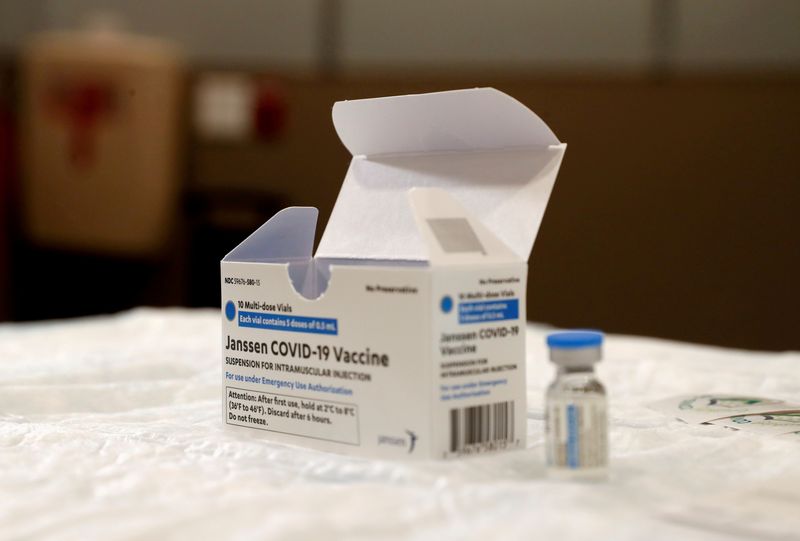(Reuters) -The U.S. health regulator said on Thursday it was limiting the use of Johnson & Johnson (NYSE:JNJ)'s COVID-19 vaccine for adults due to the risk of a rare blood clotting syndrome, the latest setback to the shot that has been eclipsed by rivals.
The J&J shot, which received U.S. clearance in February 2021 for adults, can be administered in cases where authorized or approved COVID-19 vaccines are not accessible or if an individual is less keen on using the other two shots, the Food and Drug Administration said.
J&J is one of the three vaccines in use in the United States. The other two are from Moderna (NASDAQ:MRNA) and Pfizer (NYSE:PFE).
The vaccine maker said it has updated the U.S. COVID-19 vaccine fact sheet to warn about the risk of thrombosis with thrombocytopenia syndrome (TTS), a rare but potentially life-threatening condition.
Use of the J&J shot has been weak in high-income countries, hurt by reports of rare, potentially deadly blood clots, production issues, including an accidental mix-up of ingredients by a contract manufacturer, and concerns about efficacy.
The drugmaker last month rescinded its forecast for COVID-19 vaccine sales, citing a glut of supply.
Cases of TTS, which involves blood clots accompanied by a low level of platelets, have previously been reported in recipients of the J&J vaccine.
The FDA in January amended the fact sheet for the J&J vaccine to include the risk of immune thrombocytopenia, months after the European Union's drugs regulator took similar action.
The FDA on Thursday said the risk of TTS warranted limiting the use of the single-dose shot after it conducted investigation of reported cases.

The U.S. Centers for Disease Control and Prevention in December had recommended that Americans choose to receive mRNA shots from Pfizer and Moderna over J&J's vaccine due to the rare cases of blood clotting.
Around 18.7 million Americans have received a J&J COVID-19 shot compared with 217.5 million people who received the Moderna vaccine and 340.6 million people who received Pfizer's shot, according to CDC.